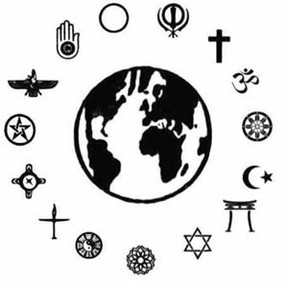 The 2011 UK census revealed a sharp decline in the number of people identifying as Christians. It was down 13% on the previous figures, describing the religious beliefs of just 59% of Britons.
The 2011 UK census revealed a sharp decline in the number of people identifying as Christians. It was down 13% on the previous figures, describing the religious beliefs of just 59% of Britons.
This still makes it the largest group of all, but when viewed in historical terms, it's a highly significant fall.
At the same time, the number of people identifying as 'no religion', Atheist, Humanist or simply ignoring the question rose expeditiously. It accounted for a quarter of the population.
As the mud-slinging began, the Church of England published a press release to counteract it. Reverend Arun Arora played down the decline in British Christianity by looking at religion as a whole.
"When all faiths are taken together, people of faith account for two-thirds of the nation - two in every three people identify themselves as having a faith."
That includes the Pagan religions. All of those writing Pagan, Wiccan, Heathen et al., would be considered 'people of faith' in Rev Arora's world view; and that is justified as an argument against those who would point out the prevalence of the non-religious.
Naturally, he went on to acknowledge that the Church of England faced challenges in modern Britain. But my jaw had already dropped at the Pagan inclusion in his rhetoric. It seems only (*counts on my fingers*) two decades ago that I was being thrown out of a multi-faith conference, for 'making a mockery' of the proceedings.
I had dared to suggest that Paganism may be considered as valid a faith as Christianity, Islam, Sikhism, Hinduism and Jainism. I had politely requested that I, as a High Priestess, may take my place on the panel along the other religious leaders.
Only in the face of the greater 'danger' of Atheism does it appear that Pagans might actually have our day. Personally, I'm not sure that I want it on those terms.


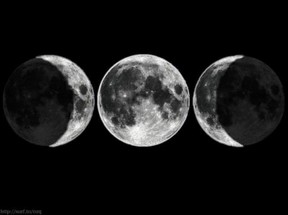 The 2011 Census of the United Kingdom was only the second time in history that British people had been asked about their religious beliefs.
The 2011 Census of the United Kingdom was only the second time in history that British people had been asked about their religious beliefs.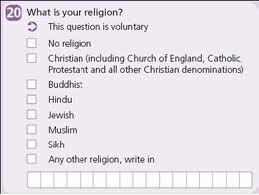 In order to get the right answer, the right question must first be asked.
In order to get the right answer, the right question must first be asked.  Taken as a whole, there are nearly twice as many people registering as a member of a Pagan religion, when the 2001 and 2011 censuses are compared.
Taken as a whole, there are nearly twice as many people registering as a member of a Pagan religion, when the 2001 and 2011 censuses are compared.


 The 2011 UK census revealed a sharp decline in the number of people identifying as Christians. It was down 13% on the previous figures, describing the religious beliefs of just 59% of Britons.
The 2011 UK census revealed a sharp decline in the number of people identifying as Christians. It was down 13% on the previous figures, describing the religious beliefs of just 59% of Britons.
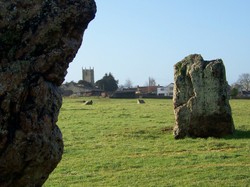

 St Tydecho's Churches in West Waleson 09/03/2014
St Tydecho's Churches in West Waleson 09/03/2014
 Goodies for an Outlander Premiere Partyon 03/06/2015
Goodies for an Outlander Premiere Partyon 03/06/2015
 Holocaust Memorial Day Interview with Rainer Höss, Grandson of Rudolf Architect of Auschwitzon 01/24/2015
Holocaust Memorial Day Interview with Rainer Höss, Grandson of Rudolf Architect of Auschwitzon 01/24/2015
 Romantic Valentine Gifts for an Outlander Fanon 01/16/2015
Romantic Valentine Gifts for an Outlander Fanon 01/16/2015


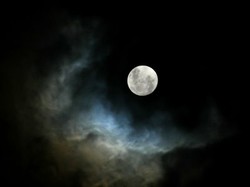
Comments
Thank you.
Saying that Atheism is a religion is problematic, because their very ethos is that there are no deities. If we're taking religion as a belief in a supreme being or beings, then they're not. But it is a convenient label to stick them into religion. It allows us to compare and contrast belief systems. If we're taking religion as a belief system, then they have to be included.
Buddhism has always seemed a beautiful way to me. It was founded as a reaction to the empire building of people like the Assyrians, Egyptians and, more importantly, those in India. It stood out at the time as the only religion/way of life which wasn't advocating taking over other people's land and committing mass genocide. It seems to have stayed true to those principles ever since.
I used to work for a Mexican company, so I could see this Mayan end of the world thing coming up. The Maya themselves wanted no part in the panic. They saw it solely as ending one calendar and beginning another. You've had to deal with the fall out as an astrologer? Awww! {{{cyber hugs}}}
As for the rest, I agree wholeheartedly with you. Though if we all agreed on one religion, that would be so boring. I love the fact that there are so many different ways of viewing the world. It stops our knowledge pool becoming stagnant.
Interesting piece, Jo. Atheists are a religion too, right? I lean towards some of the Buddhist ways, like the middle path, and I love nature. I am still searching, but feel Pagan at heart! I'm glad to see people are taking Paganism seriously. Being an Astrologer, I've had people writing and panicking about the Solstice and the end of the Mayan calender. Our calender ends every year, maybe they had another one and it's lost. My understanding is that it is time for new ideas of cooperation to be ushering their way in, for the Age of Aquarius. We have to take care of each other. People must take the best and logical ideas of their religions, and basically agree on one. All this "my religion is better than yours" is so pious and silly. And we have to get busy as we have been terrible stewards of the Earth. Well, probably not you. I have been taking my own bags to the supermarket for years, and fighting developers who won't leave any land unpaved. I do like the Pagan holidays, they make sense.
Both Heathen and Pagan are claimed words, insofar as I can tell. Pagan comes from the Latin and means, in effect, those living out in the country. The last to convert to Christianity, as they weren't in the court of kings, the older religion became the pagan religion, or peasant religion if you prefer. Ditto those living on the heathlands, the heathen.
The response of the people was pretty, 'yeah, heathen/pagan and proud!'
Many, if not most, insults and swearwords begin with snobbery and an attempt to marginalize. The C-word relates to a particularly strongly supported Goddess and Her priestesses. She was difficult to shift, when the mass conversation to Christianity began throughout the Roman Empire. But the Christians eventually did win. Her name is still seen as the worst swearword that we've got.
All hail Cunti/Kunda/Cunina!
I had no idea, until reading this, that Heathen was a religion. I thought it was, I suppose, a sort of insult. And the funny thing is, I've heard of their gods/goddesses, such as Loki and Freya.
I never fail to constantly learn things from you, whether were talking or I'm reading your writing XD
i have to agree with your friend on that one, though there's been much tinkering and refining during the intervening centuries. If I wasn't Pagan and therefore aware that my 'vote' counts here, I'd have so listed myself as Jedi.
Heathen is a religion. It's older than Christianity. It's a Germanic/Scandinavian religion, which has a pantheon including Woden, Freya, Tyr, Loki et al. One of the reasons that it has such a bad name is because those in Northern Europe held out against Christian conversion for so long. Hel is one of their Goddesses too, and you know what happened to that good lady afterwards!
So, I was reading this on my lunch break at work, and someone asked what I was reading, and I told him about it and he was all really interested. He read over my shoulder for a bit, before commenting, 'well if you think about it, essentially every religion is pagan or at least has deep pagan routs from which they draw their traditions.'
He's also my friend I was telling you about that is really into yoga... I later mentioned to him what you had told me about persons declaring themselves as Jedi, and he responded that it'd make for a better religion than most, in practice, and would probably even end up looking a bit like a pagan religion of sorts... I asked how he meant and compared it to yoga as one example with things like meditation practice, and being centered... At which point he started play fighting around kitchen with a baguette (see, light saber).
What exactly is heathen? Like, why would someone want to call themselves that?